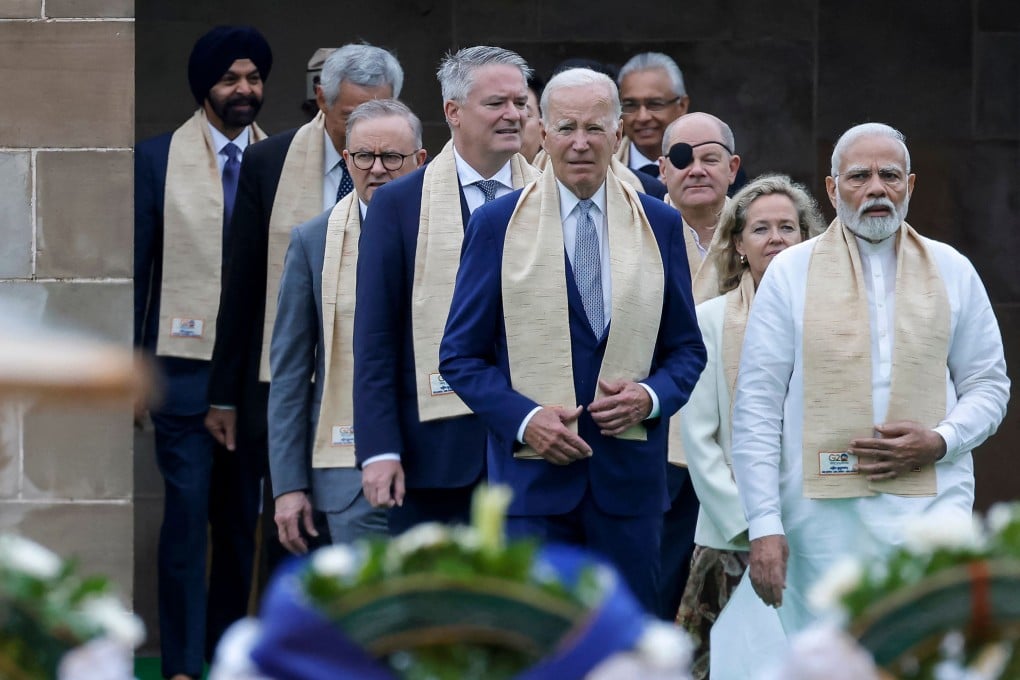Advertisement
G20 declaration fails to address climate change challenges ahead of key UN conference
- The G20 declaration falls short of firm steps required to reduce the use of fossil fuels and achieve the goal of capping global warming, analysts say
- Developing economies also need more help to cope with climate change as they bear the brunt of adverse weather
Reading Time:3 minutes
Why you can trust SCMP
4

The G20 declaration adopted over the weekend in New Delhi on clean energy production has fallen short of concrete steps required to lay the groundwork for the coming COP28 United Nations conference on climate change, analysts say.
The statement does not provide a clear timeline for reducing fossil fuel production and steps for climate-related financing for poorer countries towards achieving the long-term goal of capping the rise in average global temperature at 1.5 degrees Celsius, according to the analysts.
The G20 summit was hailed as a success by India and other members for their commitments under the declaration. Among them are an agreement to triple renewable energy production and a US$4 trillion spending goal to achieve a clean energy transition. The bloc also admitted the African Union as a member to amplify the voice of developing economies in the south.
Advertisement
In a year of extreme weather events, the G20 declaration was “unacceptable” ahead of the COP28 conference, said Christopher Beaton, a researcher at the International Institute of Sustainable Development (IISD).
“G20 leaders once again failed to acknowledge the need to phase down all fossil fuels – coal, oil and gas. Neither of this bodes well for COP 28, where the Global Stocktake emphasises the need for bold collective action,” Beaton said.
Advertisement
Advertisement
Select Voice
Select Speed
1.00x